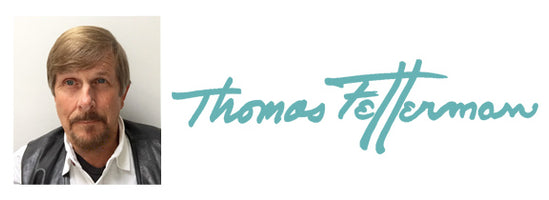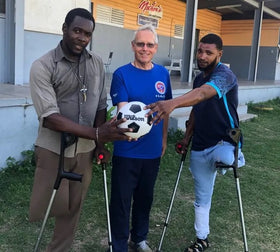
Parenting with a Disability
By Martin Block

Parenthood is an exciting adventure, but it’s not without its challenges. A new life is your responsibility, from making sure the baby’s needs are met, like food and comfort, to helping him or her reach certain developmental milestones that will build the foundation for a happy, healthy life. Parents are our everyday superheroes.
Parenthood is a journey open to anyone ready to love a child, but the idea might seem intimidating or even impossible for a person with a disability. But the reality couldn’t be further from the truth. It will take extra steps, additional support and home modifications, but you can prepare your life to set you up for success as a parent. For people with mobility issues, vision impairment, hearing loss or mental health concerns, parenthood is a path you can take. Here are a few ways you can be prepared for your specific needs in this next adventure:
Home Modifications
Purchasing modified child accessories that also make your home more accessible is a great start for family planning. With a little creative thinking, you can make sure you don’t miss out on wonderful moments and milestones like putting your baby to sleep, reading a child a book, or splashing around in the tub. When getting ready for baby, consider:
- Purchasing a raised crib with wheelchair access. Find one with the front of the crib on a hinge that opens up like a gate.
- Buying books in braille and with contrasting colors for parents with low vision or blindness.
- Installing smoke, carbon monoxide and security alarms that vibrate and light up to help alert parents with hearing impairments to safety concerns.
- Adding handrails around the bathtub to help parents with a disability give their child a bath safely.
- Utilizing natural lighting when possible to help with a positive outlook and upbeat mood.
- Using contrasting colors or textures on floors and walls to help parents with vision difficulties navigate and locate areas for play, napping and eating.
- Using velcro and large buttons or zippers for parents with joint mobility issues.
- Buying a safe or locked cabinet for all medications.
Your home is your baby’s whole world. In order to help them grow and develop smoothly, you’ll want to be able to protect them as they navigate it. Adaptations specific to your disability can empower you to support both your child and yourself.
Lifestyle Adjustments
Not only will parenting with a disability require modifications to your home; it will also require modifications to your life. This can be especially important for parents with mental health concerns who rely on routine and structure. You’re going to want lifestyle maintenance to be a priority, which will help lower stress and frustration while also making parenthood more accessible. You can start by:
- Creating a calm and serene space dedicated to yoga or meditation.
- Getting 7-9 hours of sleep—even though it will be interrupted by your baby at times, it’s still important to get rest when you can to keep energy levels up.
- Drinking plenty of water to stay hydrated and combat fatigue.
- Joining a parenting with disabilities support group at your church, community center or online. Family and friends are helpful, but there is nothing quite like the support of parents who have similar experiences as you.
- Enjoying the moment. Take the time to recognize that this experience is powerful and, though it can be challenging at times, make sure to savor those smiles, laughs and coos.

